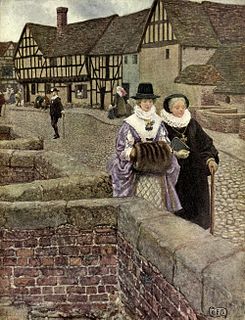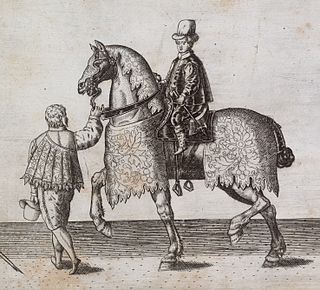Related Research Articles

John Dowland was an English or possibly Irish Renaissance composer, lutenist, and singer. He is best known today for his melancholy songs such as "Come, heavy sleep", "Come again", "Flow my tears", "I saw my Lady weepe" and "In darkness let me dwell", but his instrumental music has undergone a major revival, and with the 20th century's early music revival, has been a continuing source of repertoire for lutenists and classical guitarists.

A lute is any plucked string instrument with a neck and a deep round back enclosing a hollow cavity, usually with a sound hole or opening in the body. It may be either fretted or unfretted.

Francesco Canova da Milano was an Italian lutenist and composer. He was born in Monza, near Milan, and worked for the papal court for almost all of his career. Francesco was heralded throughout Europe as the foremost lute composer of his time. More of his music is preserved than of any other lutenist of the period, and his work continued to influence composers for more than a century after his death.

Thomas Ford was an English composer, lutenist, viol player and poet.

Bálint Bakfark was a Hungarian composer of Transylvanian Saxon origin, and lutenist of the Renaissance. He was enormously influential as a lutenist in his time, and renowned as a virtuoso on the instrument.
Robert Johnson was an English composer and lutenist of the late Tudor and early Jacobean eras. He is sometimes called "Robert Johnson II" to distinguish him from an earlier Scottish composer. Johnson worked with William Shakespeare providing music for some of his later plays.
Diomedes Cato was an Italian-born composer and lute player, who lived and worked entirely in Poland and Lithuania. He is known mainly for his instrumental music. He mixed the style of the late Renaissance with the emerging Baroque, and also Italian idioms with Polish folk material; and in addition he was one of the first native-born Italian composers to visit Sweden.

Adam Falckenhagen was a German lutenist and composer of the Baroque period.
Michelagnolo Galilei was an Italian composer and lutenist of the late Renaissance and early Baroque eras, active mainly in Bavaria and Polish–Lithuanian Commonwealth. He was the son of music theorist and lutenist Vincenzo Galilei, and the younger brother of the scientist Galileo Galilei.
Albert de Rippe was an Italian lutenist and composer. He was born in Mantua and worked there before 1528, when he left for France. There, he joined the court of Francis I. De Rippe was evidently held in great esteem at the court, as his annual salary was double that of any other lutenist, and he also frequently received gifts of land, money, wine, etc., and various other benefits. He only published three works during his lifetime, but six volumes of his music were published posthumously by his pupil, Guillaume de Morlaye. That edition was titled, and is now sometimes referred to as, tab[u]lature de leut.
Francis Cutting (c.1550–1595/6) was an English lutenist and composer. during the Renaissance period. He is best known for "Packington's Pound" and a variation of Greensleeves called "Divisions on Greensleeves", both pieces originally intended for the lute.
Julien (Jean) Perrichon was a French composer and lutenist of the late Renaissance. He was a lute player for Henry IV of France and famous enough to be mentioned by Marin Mersenne in Harmonie universelle (1636) as one of the finest musicians of the preceding age.

Daniel Bacheler, also variously spelt Bachiler, Batchiler or Batchelar, was an English lutenist and composer. Of all the English lutenist-composers, he is now credited as probably being the most successful in his own lifetime.
Ennemond Gaultier (c. 1575 – 17 December 1651) was a French lutenist and composer. He was one of the masters of the 17th century French lute school.

Charles Mouton was a French lutenist and composer.

Esaias Reusner was a German lutenist and composer.

Early music of Britain and Ireland, from the earliest recorded times until the beginnings of the Baroque in the 17th century, was a diverse and rich culture, including sacred and secular music and ranging from the popular to the elite. Each of the major nations of England, Ireland, Scotland, and Wales retained unique forms of music and of instrumentation, but British music was highly influenced by continental developments, while British composers made an important contribution to many of the major movements in early music in Europe, including the polyphony of the Ars Nova and laid some of the foundations of later national and international classical music. Musicians from the British Isles also developed some distinctive forms of music, including Celtic chant, the Contenance Angloise, the rota, polyphonic votive antiphons, and the carol in the medieval era and English madrigals, lute ayres, and masques in the Renaissance era, which would lead to the development of English language opera at the height of the Baroque in the 18th century.

Adrian Le Roy (c.1520–1598) was an influential French music publisher, lutenist, mandore player, guitarist, composer and music educator.

Court music in Scotland is all music associated with the Royal Court of Scotland, between its origins in the tenth century, until its effective dissolution in the seventeenth and eighteenth centuries with the Union of Crowns 1603 and Acts of Union 1707.
Anthony de Countie, also called Anthony Conti, Anthony de Conti and Anthony de County,, was a Renaissance composer and lutenist, active in the 16th century at the Tudor court in England, and one of the principal lutenists of the Elizabethan era.
References
- ↑ Poźniak, Piotr (2001). "Jakub Reys". In Sadie, Stanley; Tyrrell, John (eds.). The New Grove Dictionary of Music and Musicians (2nd ed.). London: Macmillan.
- ↑ "The Oxford Companion to Music" Scholes,P Oxford,OUP,1955 p823